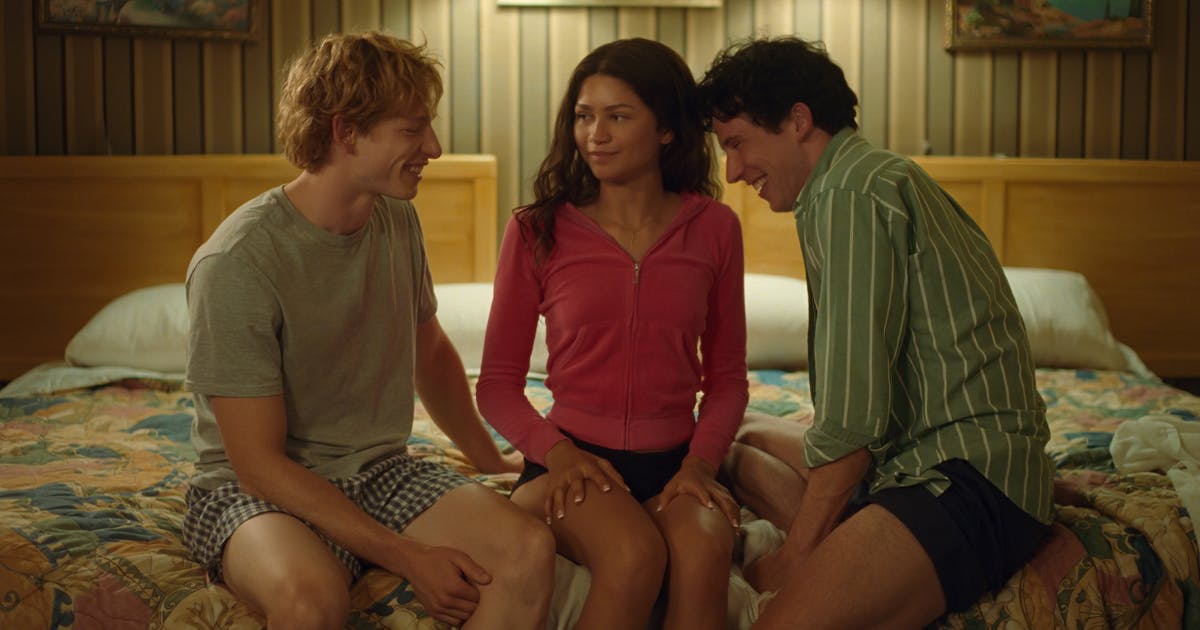
For Tashi, tennis is not love: Love is tennis. When forced to choose between a man-child who needs to be held until he falls asleep and a trust fund baby looking for a backseat romp and a place to shower, is it any wonder she chooses the sport of kings?
The film is about as romantic as its female lead, which is to say, not very. Challengers runs on endorphins, not dopamine, and its very form gives you a workout: the wild intercutting, the talking about talking about tennis, Zendaya’s runway strut, Josh O’Connor’s acting opposite a churro. The cinematography is, at turns, hypnotic and jarring, as balls fly at the lens, sweat pours down on the viewer, actors fleetingly break the fourth wall and gaze lovingly at you (yes, you). The image of Tashi’s career-ending injury is shot so brutally, in such close quarters, that it feels like a personal, visceral injury for the spectator. But Challengers’ aggressive energy is best exemplified by Trent Reznor and Atticus Ross’s loud, intrusive soundtrack—varied, weird, and synth-heavy—which plays over quiet and flashy moments alike.
In short, Challengers’ confrontational, music video vibe is its true kink. The film is careful about how it tells the story, but seems to suggest that spectacle—not narrative, not even psychological continuity—is all that matters. This argument is line-driven home by Challengers’ concluding shot, a cut to black so bananas, somehow both earned and unhinged, that I near-yelled “What?!” in a crowded press screening. It’s less an ending than a punch line, making you wonder if what you’ve really been watching is a fashion-forward comedy. But what’s the joke? And who’s it on?






